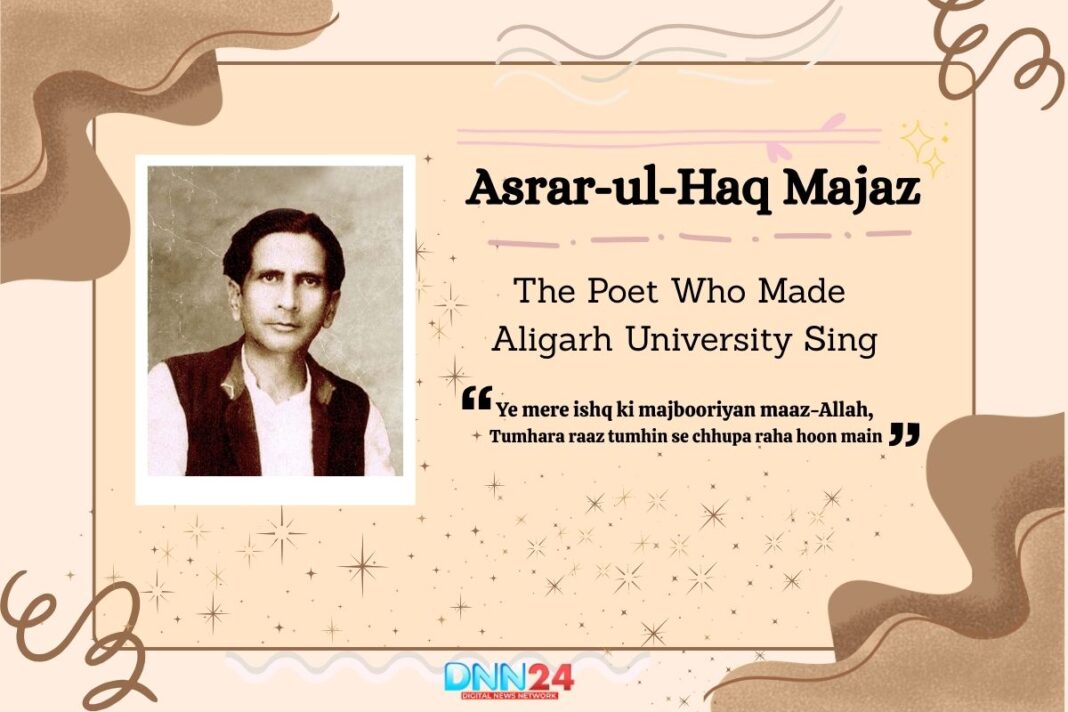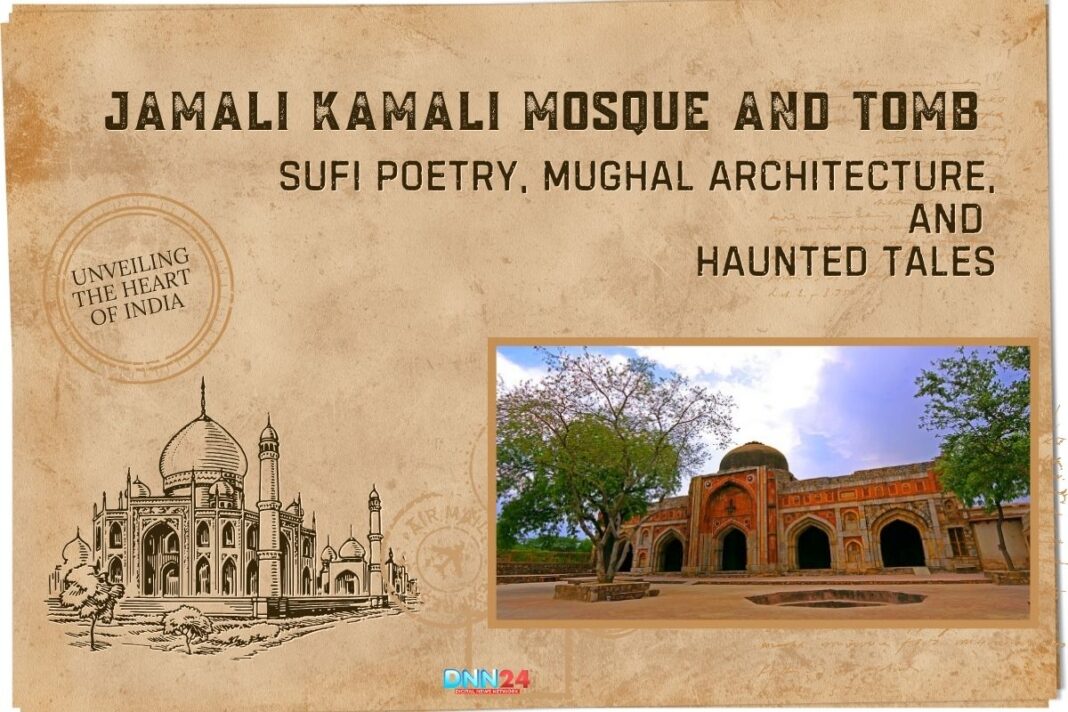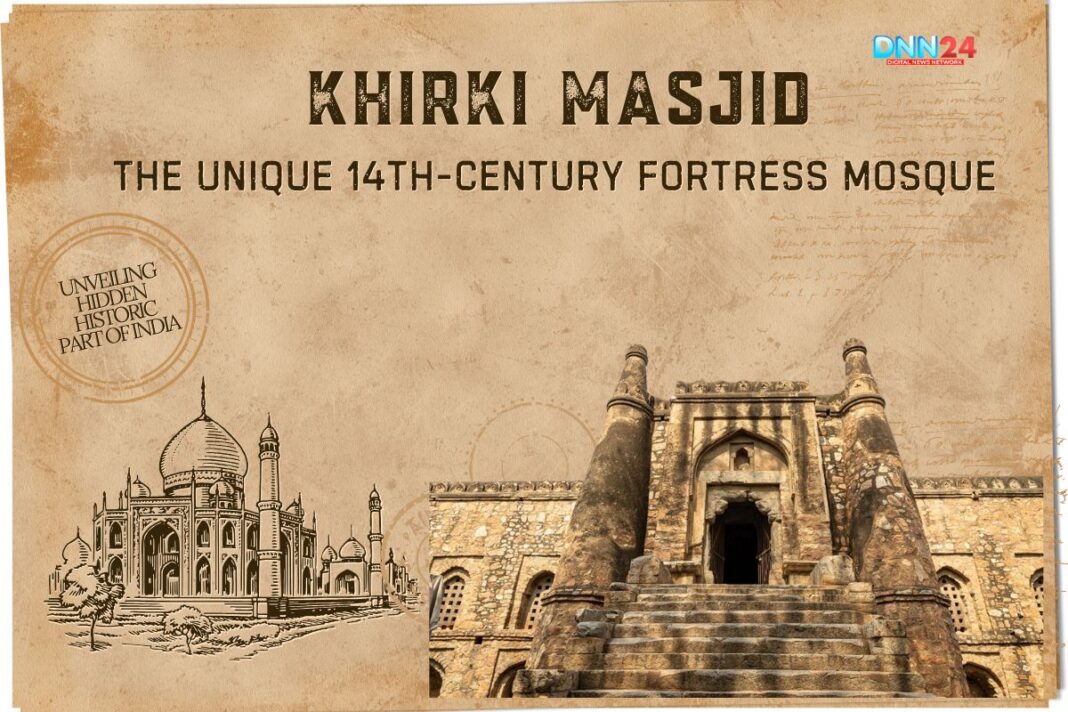Asrar-ul-Haq Majaz was not just any ordinary poet; he was pure magic with words. When he wrote about love, beauty, romance and rebellion, every word became like a sweet song that touched people’s hearts. Majaz wasn’t simply a shayar (poet); he was a feeling and spiritual music that made life dance to his rhythm. During his time, there were many famous poets like Faiz, Jafri, Makhdum, Sahir and Jazbi, but Majaz had something special that made everyone remember his name.
husn ko be-hijab hona tha
Majaz
shauq ko kaamyab hona tha
hijr mein kaif-e-iztirab na puchh
KHun-e-dil bhi sharab hona tha
His famous poem “Aawara” (The Wanderer) became so popular that other poets of his time felt jealous of his success. People would recite his verses in the streets, in college gatherings, and even lovers would whisper his romantic lines to each other.
shahr ki raat aur main nashad o nakara phirun
Majaz
jagmagati jagti saDkon pe aawara phirun
ghair ki basti hai kab tak dar-ba-dar mara phirun
ai gham-e-dil kya karun ai wahshat-e-dil kya karun
What made Majaz different was his ability to mix deep emotions with beautiful language – he could make even pain sound musical. His words had the power to make people laugh, cry, and fall in love with life itself. This magical quality of turning simple Urdu words into unforgettable melodies made him a legend that people still remember today.
junun-e-shauq ab bhi kam nahin hai
Majaz
magar wo aaj bhi barham nahin hai
bahut mushkil hai duniya ka sanwarna
teri zulfon ka pech-o-KHam nahin hai
From Awadh’s Land to Aligarh’s Halls
In 1911, little Asrar-ul-Haq opened his eyes in Rudauli, a small town in the Barabanki district of Awadh. He was born into a well-educated zamindar (landlord) family, and his father, Siraj-ul-Haq, believed strongly in English education and worked in government service. Young Majaz got lots of love and care at home, but books interested him less than poetry, music and the wonderful world of dreams that lived inside his imagination.
taskin-e-dil-e-mahzun na hui wo sai-e-karam farma bhi gae
Majaz
is sai-e-karam ko kya kahiye bahla bhi gae taDpa bhi gae
His educational journey started in his hometown, Rudauli, then moved to Lucknow and Agra, and finally reached Aligarh. When his family forced him to study engineering at St. John’s College in Agra against his wishes, the dry subjects like mathematics and physics made his romantic nature feel even more lost and confused. It was here that he met fellow poets Fani Badayuni and Jazbi, and Asrar-ul-Haq began writing poetry using the pen name ‘Shaheed’.
kuchh tujh ko KHabar hai hum kya kya ai shorish-e-dauran bhul gae
Majaz
wo zulf-e-pareshan bhul gae wo dida-e-giryan bhul gae
But the real magic of poetry opened up for him when he reached Aligarh Muslim University, where the air itself was filled with literature, revolution and love. This was the golden period when great writers like Manto, Ismat Chughtai, Sardar Jafri, Jan Nisar Akhtar, and Makhdum all created revolutionary thoughts and cultural beauty through their words.
kamal-e-ishq hai diwana ho gaya hun main
Majaz
ye kis ke hath se daman chhuDa raha hun main
The Philosophy of Sword, Music and Wine
For Majaz, poetry wasn’t just about describing beauty – it carried the effect of wine and the sharpness of a sword too. But his style of expression was soft, silky, and filled with melody. He presented emotions in such a way that even pain started humming sweet tunes. Just look at his famous poem “Aawara” – it tells the story of a wandering heart that is both romantic and rebellious at the same time.
“Sheher ki shaam, seher ka sapna, main hun aawara…” (Evening of the city, morning dream, I am a wanderer…). These lines became the voice of every young person who felt lost between dreams and reality. Majaz’s verses contained the sound of the soul and the purity of true love. His poems spoke more about loving humanity than just loving a beloved.
In his writings, there was melody, sighs of pain, and that peaceful feeling of music which could create pure magic. He had the rare gift of making readers feel like they were listening to beautiful music instead of just reading words on paper.
Heartbreak and Chains of Loneliness
Majaz’s life wasn’t just a spiritual story of poetry; it was also the tale of a tragic hero who faced many sorrows. His failure to fall in love with an educated, rich girl in Delhi, followed by unemployment, broke him completely from the inside. After 1936, his mental balance was disturbed three times, and alcohol became his last companion in fighting loneliness and depression.
Kuch tumhari nigah kafir thi,
Kuch mujhe bhi kharab hona tha.
He spent his evenings wandering in the lanes of Lucknow, working at the radio office, sitting alone in libraries, and finally on the ‘roof of the lorry’ – a place where he used to go to escape from the world. On a cold night in 1955, when everyone left him alone on that roof, he froze there – both his body and his voice.
Tere maathe pe ye aanchal bahut hi khoob hai lekin,
Tu is aanchal se ek parcham bana leti to achha tha
The next day, in the hospital, his breathing stopped forever. His death was as dramatic and sad as his poetry – a talented artist who gave everything to his art but couldn’t find peace in his own life. Even today, when people read about his tragic end, they feel the same sadness that flows through his most emotional poems.
When Majaz Gave Aligarh Its Voice
Around 1930, Aligarh Muslim University had become the biggest example of educational brotherhood in the country. The tree planted by Sir Syed Ahmad Khan was now bearing the fruits of knowledge and culture. The students here had scholarly enthusiasm, good manners, and a burning desire to do something great for their country. But there was one thing missing: Aligarh University didn’t have its anthem, a poem that could represent the soul, character, and educational journey of this great institution.
Mujh ko ye aarzu vo uthayein naqaab khud,
Unko ye intezaar taqaza kare koi
Majaz, who was a student of Aligarh himself, was asked to write something for a university gathering. His poetry already had romantic beauty and deep emotional pain. Still, that day, he wrote a poem that was neither about love nor separation – it was dedicated to the university that loved its students like a mother and taught them to live with their heads held high. When he recited those lines, the entire hall echoed with applause.
Ishq ka zauq-e-nazaara muft mein badnaam hai,
Husn khud be-taab hai jalwa dikhane ke liye
People were amazed that Majaz, known for his romantic and sad poetry, could write something so uplifting and passionate! But this was exactly who Majaz was – his pen could write in every colour of poetry. This anthem slowly became the identity of Aligarh Muslim University, and even today, its name is taken with respect and honour.
The Anthem That Became Aligarh’s Heartbeat
That day, Majaz recited the poem that started with: “Ye mera chaman hai, mera chaman, Main apne chaman ka bulbul hun…” (This is my garden, my garden, I am the nightingale of my garden…). The entire audience burst into thunderous applause. These weren’t just words – they were emotions that every student of Aligarh could feel in their heart.
sarshaar-e-nigah-e-nargis hun pa-basta-e-gesu-e-sumbul hun
ye mera chaman hai mera chaman main apne chaman ka bulbul hun
har aan yahan sahba-e-kuhan ek saghar-e-nau mein Dhalti hai
kaliyon se husn Tapakta hai phulon se jawani ubalti hai
jo taq-e-haram mein raushan hai wo shama yahan bhi jalti hai
is dasht ke goshe goshe se ek ju-e-hayat ubalti hai
The anthem contained beautiful lines like: “Mujhe phool par naaz hai ki meri, Wafa ki wo pehli manzil hai” (I am proud of the flower because it is the first destination of my loyalty). Through these verses, Majaz expressed how much students loved their university – like a nightingale loves its garden, like flowers love their branches, like a gardener loves his beautiful creation.
The poem became so popular that it started being sung in every university function, every annual day, and every gathering where Aligarh students came together. Even after so many decades, when this anthem is recited, Majaz’s spirit seems to hum along with the words in the air. This wasn’t just an anthem – it was Majaz’s declaration of love for Aligarh that gave him poetry, life, and identity.
islam ke is but-KHane mein asnam bhi hain aur aazar bhi
tahzib ke is mai-KHane mein shamshir bhi hai aur saghar bhi
yan husn ki barq chamakti hai yan nur ki barish hoti hai
har aah yahan ek naghma hai har ashk yahan ek moti hai
har sham hai sham-e-misr yahan har shab hai shab-e-shiraaz yahan
hai sare jahan ka soz yahan aur sare jahan ka saz yahan
Majaz – The Eternal Song of Life
Writer Ismat Chughtai once said after his death: “I used to tell Majaz Why don’t you just die, and now Majaz has answered – look, I have died.” But Majaz’s influence is still alive in his poetry today. He was a poet of beauty, but his love for beauty had the purity of true devotion. His poem “Ek Nurse ki Charagari” (A Nurse’s Treatment) shows a sick heart’s encounter with beauty, filled with hesitation and culture that separates Majaz from every other romantic poet.
wo nau-KHez nura wo ek bint-e-maryam
wo maKHmur aankhen wo gesu-e-pur-KHam
wo arz-e-kalisa ki ek mah-para
wo dair-o-haram ke liye ek sharara
wo firdaus-e-maryam ka ek ghuncha-e-tar
wo taslis ki duKHtar-e-nek-aKHtar
wo ek nurse thi chaara-gar jis ko kahiye
madawa-e-dard-e-jigar jis ko kahiye
Majaz was the voice of gatherings where people clapped and listened with joy, but that voice became broken music in the end. His character is an example of a broken but still shining personality. He lived life with love, spent it with madness, and left poetry as a melody for future generations.
Dafn kar sakta hoon seene mein tumhare raaz ko,
Aur tum chaho to afsana bana sakta hoon main.
Today, when young people read his verses about wandering hearts, impossible love, and beautiful dreams, they still feel the same magic that made Majaz immortal. His words continue to touch hearts, inspire lovers, and remind everyone that true poetry never dies – it just keeps singing in new voices, in new times, forever and ever.
Also Read: Shehryar: The Poet of Dreams and Dusk
You can connect with DNN24 on Facebook, Twitter, and Instagram and subscribe to our YouTube channel.



